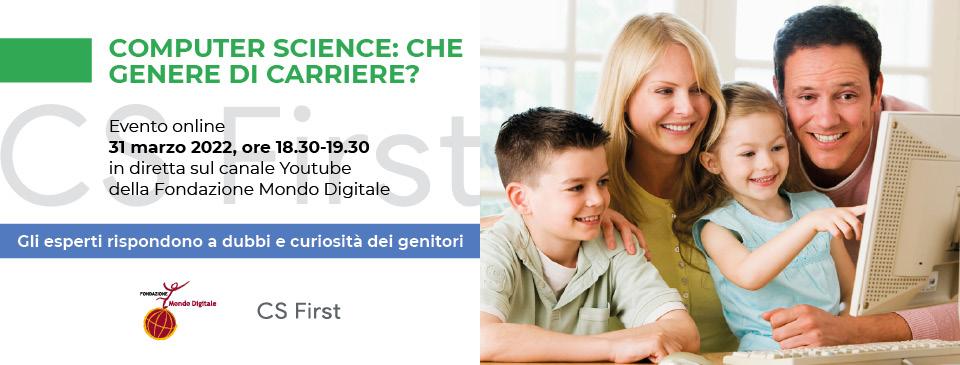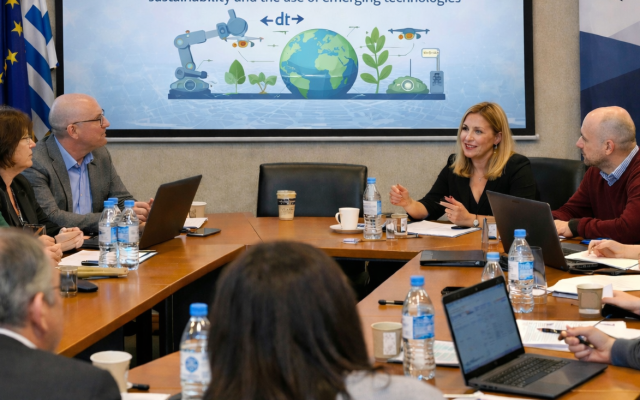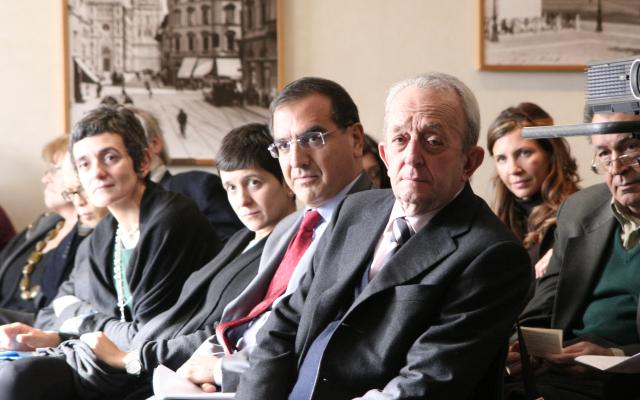Valentino Megale is a classical laboratory biologist working with test tubes and compounds who then moved on to explore the contribution of new technology for the development of projects with a high social impact. He founded start-up Softcare Studios and developed Tommi, a video game based on virtual reality for hospitalised children.
Valentino presented his professional experience to parents, as part of the second appointment of Generations On-line, a cycle of meetings promoted by Project CS First to address the great challenges of digital life and orient young students towards scientific careers, free of any prejudice [see news: Orienting Children].
He also explained his video game, Tommi, which uses virtual reality to produce a real change in children in pain, who suffer less and tolerate longer examinations and fastidious therapies better.
“We have understood that digital technology is above all experiential technology. It provides you with the possibility to change, modify and mould our experiences over a certain time period in a given place. Health is a holistic concept that does not only concern the body, but is profoundly influenced by our mental, psychological, emotional and social health. Many diseases often derive from a malaise, a psychological one … in other cases, it’s the cure, the results of hospital therapy that are profoundly influence by how a person lives that experience. Softcare Studios, which was founded in Rome in 2017, focuses on the stress management of hospitalised patients.”
“Digital technology can help us to make patients more ready for therapy, to take them beyond … Virtual reality allows us to simulate our sense of presence in a different place. It’s a very strong feeling, a realistic one, that is very different from anything we can experience through a television screen. Virtual reality immerses us in an involving virtual scenario that is interactive and dynamic, even if we are aware that it is a simulation. The brain believes it is in another place and reacts to the virtual stimuli as if they were real. This is defined as sense of presence. We can stimulate an individual’s senses to make them more relaxed, reduce perception of pain or stress, or reassure them about undertaking a therapy.”
"Tommi is a virtual reality technological solution that uses the most natural means for children to face stress: play. Thanks to the visor interface, the child is immersed in another world, outside of the hospital, on a magic island. Their brain believes they are elsewhere, even if they cannot move, and the experience is so realistic that even the perception of physical pain is reduced. It works as a sort of “sedative of perception” that is neither pharmacological, nor invasive, and is precious for paediatric oncology, dentistry, orthopaedics and diagnostic tests, such as blood tests.”
Tommi is currently being tested in 18 hospitals. At the “S. Gerardo” Hospital in Monza, it is used in a pilot project for blood collection. The immersion in virtual reality allows children to feel 38% less pain.
At the Buzzi Hospital in Milan, Tommi replaces pharmacological sedation in lengthy procedures that are often very painful for children.
![]()
The third meeting of Generations On-line, which will be held on March 31 (6:30), is dedicated to gender prejudice in STEM subjects [to participate].
![]()
Project Computer Science First is promoted by the Fondazione Mondo Digitale in schools as the free platform developed by Google helps students develop computational thinking and soft skills in a fun manner, integrating them into the didactic activities of core curricular subjects with more efficient methodologies.




